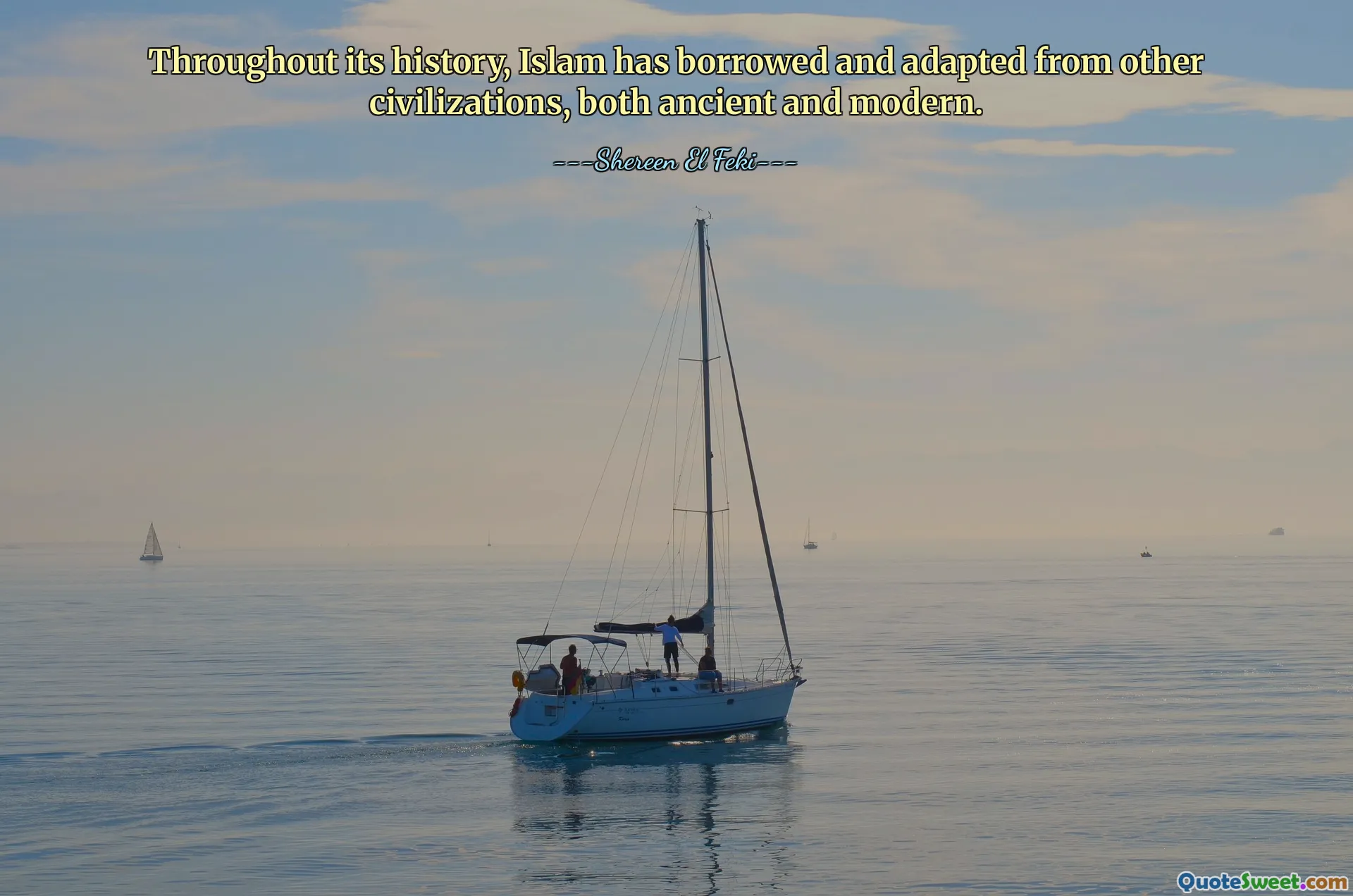
Throughout its history, Islam has borrowed and adapted from other civilizations, both ancient and modern.
📖 Shereen El Feki
Islam's history of borrowing and adaptation highlights the dynamic nature of cultural exchange and intellectual development within the civilization. Unlike the misconception that religions or societies are static or isolated, this perspective reveals a fluid interplay of ideas, practices, and knowledge that have influenced Islamic faith, science, philosophy, and art over centuries. Throughout the Islamic Golden Age, many scholars transliterated and translated works from Greek, Persian, Indian, and other civilizations, which served as a catalyst for advancements in medicine, mathematics, astronomy, and philosophy. This borrowing was not merely copying but involved contextual adaptation, blending influences with indigenous traditions to create a unique and rich cultural tapestry. Such an approach demonstrates openness, curiosity, and a commitment to knowledge that is essential for progress. It also underscores the importance of intercultural dialogue and the recognition that progress often arises from building bridges between diverse civilizations. Understanding this aspect of history fosters respect for the integrated and collective heritage we share, emphasizing that knowledge transcends borders and that civilizations evolve through mutual influence and exchange. As modern societies grapple with globalization and intercultural interactions, acknowledging the historical tendency of cultures like Islam to borrow and adapt can promote a more inclusive and appreciative attitude towards diversity. It reminds us that growth often arises from synthesis and that embracing different perspectives and traditions ultimately enriches societies, making them more resilient and innovative.











